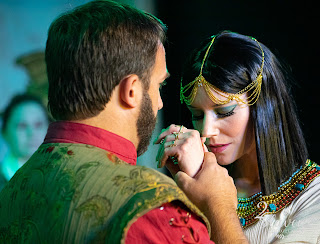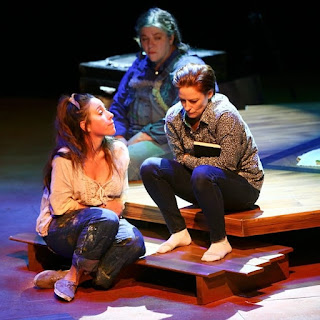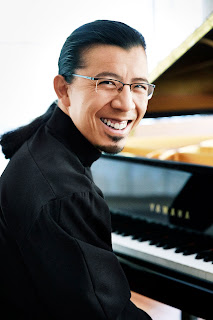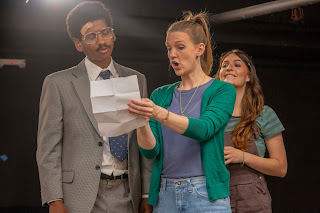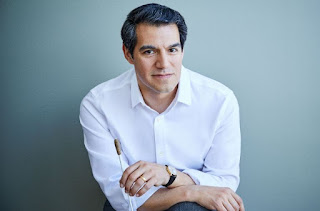Comedy both hermetic and open: Bard Fest's 'Love's Labour's Lost' runs the gamut
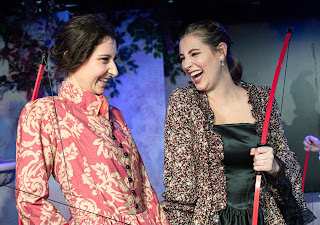
A touch of modernism — self-consciousness about what a stage play is — helps redeem for today the topical tangle of Shakespeare's early comedy "Love's Labour's Lost." Indy Bard Fest negotiates the obscure aspects of a work that was probably intended for court performance, allowing for endless word play and larded with expressions that have disappeared from the mainstream. It's a style that would have baffled even the groundlings at Shakespeare's Globe. But reminders of the play's artificiality are relentless, and the implausible is no obstacle to making the action believable over the short term. Amateur archers:Rosaline and the Princess chat. Seen at the Cat Theatre Friday night near the end of its run, the production embraces the nonsensical premise on which the play is based — and everything that ensues from that: a royal whim to gather lusty, highly placed men around the monarch to abjure the company of women in favor of three years' worth of s


